Mobile Research Labs
Mobile laboratories designed to study the impacts of pollution on aquatic & marine life
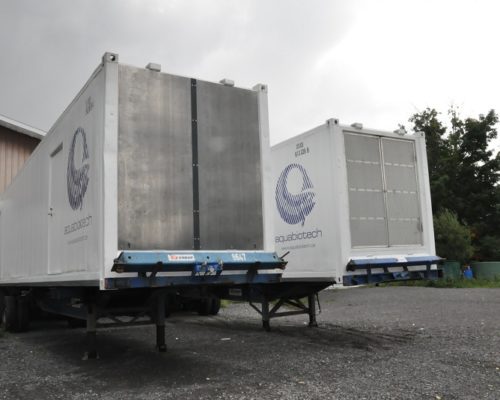
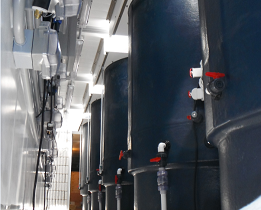
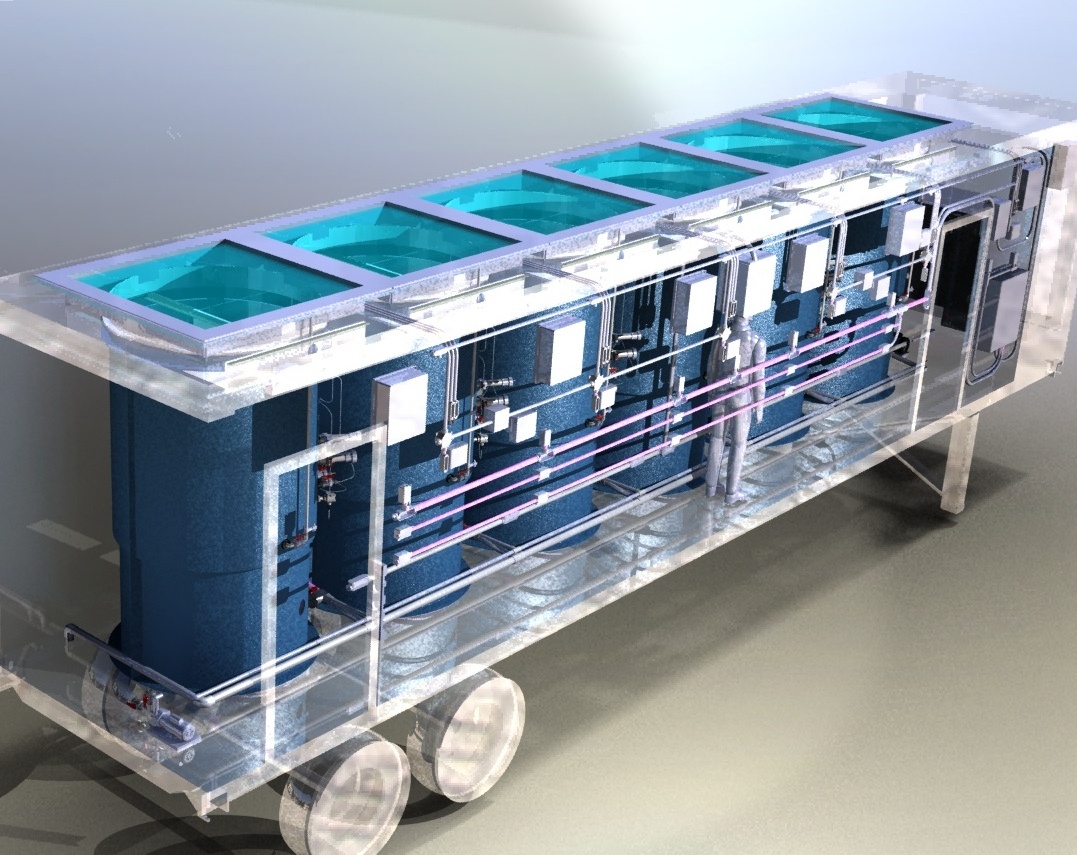
- These mobile laboratories can integrate the control of water parameters
- Fish testing tanks, mesocosms or aquariums are built into a shipping container or trailer
- Tank hydraulics can be static, flow through or recirculating
- Probes and sample ports can be integrated for monitoring and control
- Storage tanks for effluents, fresh or salt water
- Collected data sent via Internet or via a satellite
- Built to your specifications and needs
Technical Details
- Mobile laboratories may be installed in insulated ocean containers. Each container measures 12.3 m long x 2.5 m high x 2.5 m large.
- 53 ft trailers (16 m) are also great for effluent testing laboratories.
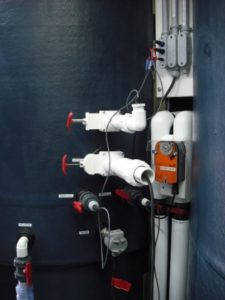
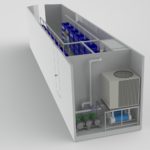
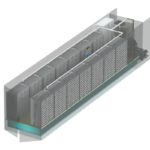
There is a 1m deep section in the front of the enclosure that holds the compressor for the water cooling system and a heat pump to control the room air temperature It is also where the electrical entrance is situated. This section must be closed with marine-grade aluminum panels for transportation. It is also covered with grilled doors to allow air circulation when in use.
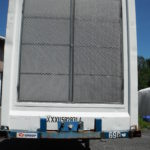
A freshwater and/or saltwater reserve is placed at the back of the enclosure. A second reservoir situated at the front is filled with a glycol solution. A dedicated pump feeds this solution to the heat exchangers (one per research unit) for water cooling.
For remote location, the mobile laboratory is wired for satellite communication. Otherwise, data can be transferred via Internet.
All the electrical equipment in our mobile laboratories is connected to a CSA-approved control panel, ready to be hooked up to 110V or 220V, 60Hz 1 phase.
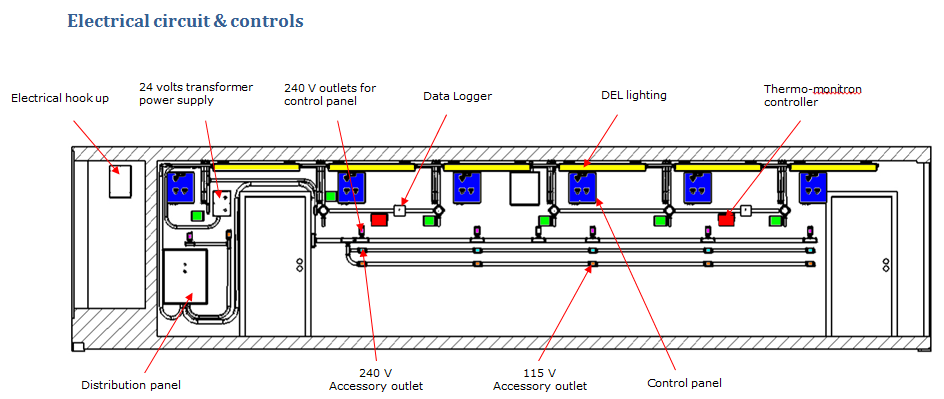
Electrical outlets are accidental splash protected and are NEMA 6-15 (240 V) or NEMA 5-15 (120 V) certified. 220 V outlets come with a universal adapter for several international plugs.
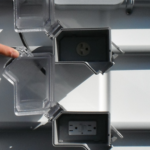
This mobile lab is built in compliance with security requirements of the Commission de Santé & sécurité au travail du Québec (CSST). The security features are :
- One door at each end of the lab to allow a keyless evacuation.
- A luminous « EXIT » sign with emergency battery and lights on top of each door.
- A first aid kit placed by the rear door of the lab.
- A dry powder fire extinguisher near the rear door of the lab.
- A padlocking station near the rear door of the lab.
- A heat sensor situated in the middle of the lab.
- Two lockable screen doors to secure the front section of the lab.
- Each of the four doors of the lab (rear doors, front screen doors, front and back side doors) has its own unique key.
The cost estimate for a mobile laboratory begins with a preliminary design phase ($).
Researcher’s goals and project constraints are assessed in terms of lab equipment and services and translated into a workable scheme. Through this process we define elements such as:
- Volume and type of experimental tanks with associated water filtration/recirculation systems when needed;
- Water storage;
- Water pre-treatment process, if applicable;
- Space requirements;
- Shipping container or trailer or selection
- Water temperature and environmental control management
- Effluent discharge if applicable
- Safety features
- Preliminary layout
- Budget cost estimate
Our recommendations meet CCAC guidelines for the care and use of fish in research, teaching and testing.
The fabrication phase begins with the final design and detailed layouts of the mobile research lab. Once approved, the equipment is fabricated and installed in the shipping container provided by the client. Once delivered, Delivery, commissioning and training soon follow. Through our outstanding technical support we make sure your mobile laboratories offers the optimal research environment that was planned for.



